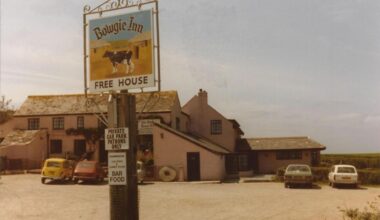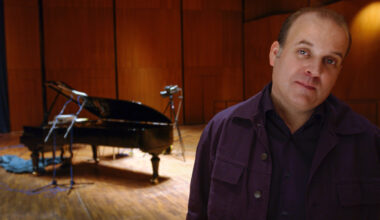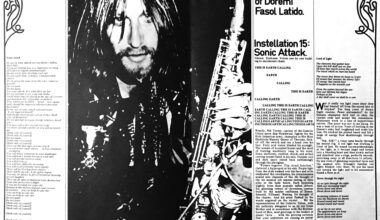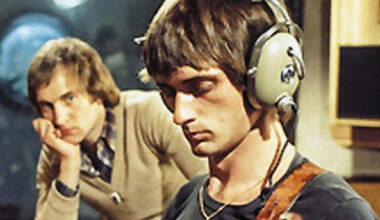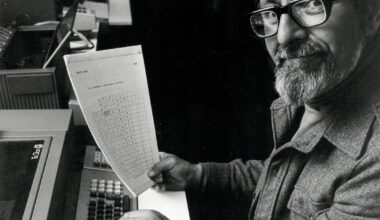It’s September 1984 and UK industrial pioneers Test Dept are flexing their political muscles as they throw their musical weight behind the increasingly bitter miners’ strike, beginning with a now legendary benefit concert in south London…
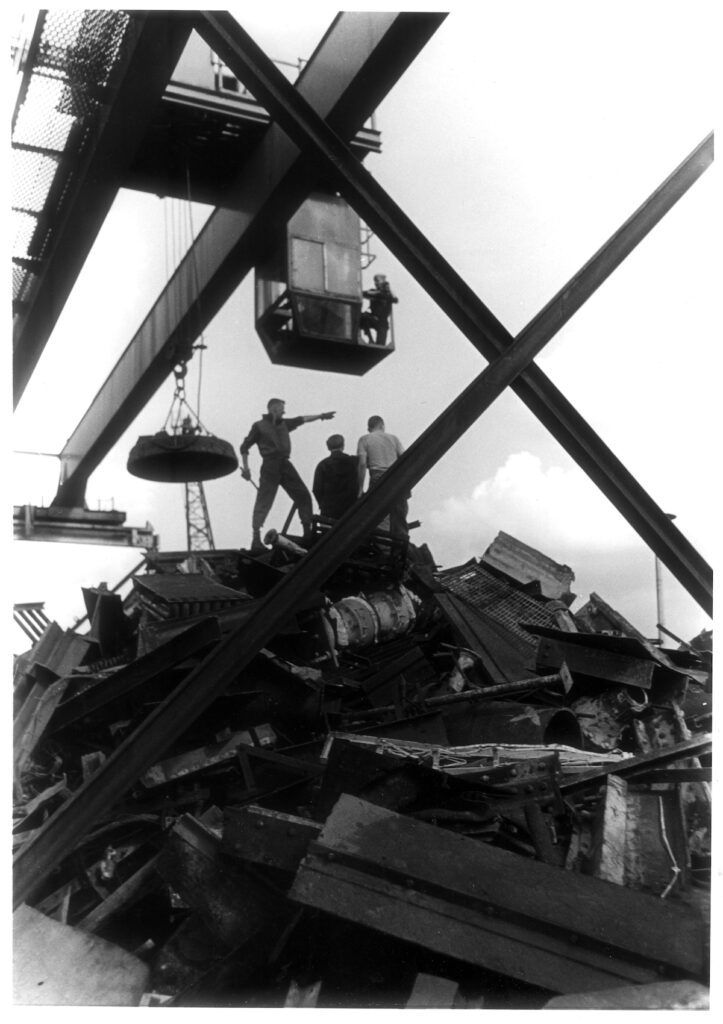
“What we were doing and saying back then has turned out to be very prescient of where we are now,” says Test Dept’s Graham Cunnington. “But what’s going on today has far exceeded what we were thinking. We couldn’t have believed that technology would encourage people to be compliant in their own surveillance in the way that social media has made them.”
Having been subjected to phone tapping and restrictions of movement by a government trying to suppress his involvement in strike activity, this is something Graham Cunnington knows plenty about.
Rising out of the ravaged, industry-scarred topography of south London at the start of the 1980s, Test Dept found inspiration in the abundance of scrapyards and disused factory sites that littered the banks of the Thames, creating noise using whatever they could find on the junk heaps. Test Dept’s live performances were less gigs and more full-on physical attacks, taking place in abandoned spaces and publicised using underground means and word of mouth. They were often shut down by the police. When they did get to play a full set, their shows would feature evocative visuals and films, as well as the furious pummelling of whatever found instrument had the misfortune to fall under the band’s hammers.
“We were always political, but we weren’t aligned to anything in particular,” says Cunnington of Test Dept’s early years. “The trigger for us becoming more directly involved in politics was the Falklands War. Margaret Thatcher manipulated that nationalistic fervour for her own ends, right from the start of the war up to the miners’ strike.”
The UK miners’ strike of 1984-85 would prove to be not only Test Dept’s political calling, but the event that ushered in an unprecedented dismantling of Britain’s industrial heritage. Cunnington and his bandmates quickly found themselves inextricably embroiled in the plight of the miners. While other musicians who supported the strike invited miners to speak and rattle buckets at gigs, Test Dept went much further, committing themselves fully to the cause, the people and the struggle, beginning with a benefit concert in south London in September 1984.
“Pat Brown, who was in the Deptford Labour Party at the time, was putting on this benefit at the Albany arts centre, but all the bands he’d earmarked to play had pulled out,” recalls Cunnington. “Jack Balchin, who was our sound guy and who worked in Deptford and Lewisham teaching music to young kids, said we should do it. He went up to Pat and said, ‘I’ve got the band for you’. Pat had never heard of us, but he said OK, and because we were used to putting on our own shows, we said we’d organise the whole thing. We also said we should have some direct involvement with the mining community, not just do a benefit and send the money out. We really thought there should be some crossover.”
That crossover would take the form of the South Wales Striking Miners Choir, who performed on stage with Test Dept at the Deptford Albany gig.
“Jack Balchin had always loved Welsh choirs,” explains Cunnington. “He thought it would be great to have a striking Welsh miners’ choir, so Pat started making some enquiries. It proved really difficult, though. A lot of the miners’ choirs were made up of lots of different parts of the community. Some would be for the strikes, some would be against, and there was never any question of people putting their differences aside. Eventually, Pat dialled up Keith Bufton. He was a miner from Crynant in South Wales, and he pulled a choir together from different groups in Crynant, Glyneath and Onyllwyn.”
While most members of the newly-formed choir knew each other, they’d never sung together before. They ended up rehearsing their songs on the bus to London. For many of the men, it was also the first time they’d been to the capital.
“Some of them were quite worried,” says Cunnington. “Deptford was a vibrant community, but like a lot of post-industrial London it was suffering from the decimation of its industry. It was quite an intimidating place.”
On top of that, the choir had never heard Test Dept’s music before and had no idea what to expect.
“Looking back, it must have been very, very surreal for them,” notes Cunnington. “They’d possibly heard about some of our early gigs, so they were probably expecting a punk band. They must have been quite shocked when they saw us and heard us play, but the emotion, the attitude, the intensity, and the whole meaning and intention of the concert was immediately understandable to everyone. We weren’t just weird people playing loud music. They also recognised the world of industry that we channelled.
“We totally transformed the venue,” he continues. “We always used visuals at our concerts, we always had three screens, but at the Albany we had an extra screen at the back and we surrounded the room with images of the cause. The crowd at the Albany was made up of so many different people, from our sort of alternative crowd to people supporting the miners’ cause to locals and all sorts. The feeling of support and solidarity that night was really quite overwhelming.”
Following on from the Deptford gig, Test Dept toured the UK, playing with other miners’ choirs and with colliery bands.
“Most people absolutely got the spirit of the gigs and how they were raising money for the miners,” says Cunnington. “Looking back now, those two completely different cultures coming together was really quite startling. It helped to fuse people together, and the anger, pain and emotion of the time was reflected through the music and the miners voices. Every single place we went to, every venue we played at, in pit villages and miners’ welfare clubs all over the country, what we were doing was immediately recognised and understood by those communities. It was completely intuitive.”
Test Dept forged many important connections during the tour. One such bond was formed with Alan Sutcliffe, a Kent miner and activist who first spoke at a gig in Brighton. Sutcliffe’s powerful, emotive voice can be heard on ‘Shoulder To Shoulder’, the 1985 album Test Dept subsequently recorded with the South Wales Striking Miners’ Choir and which represents an audio document of the band’s participation in the miners’ strike. Sutcliffe went on to work with Test Dept on several more albums, as well as performing at their much-praised Ministry Of Power cross-cultural events.
Three decades on, Graham Cunnington views the unrest of the 1980s as a modern-day civil war that was fought on the picket lines and on the streets, a conflict between hard-working people defending their livelihoods and an anti-industrialist, power-hungry regime.
“Looking back, it was a pivotal moment,” he concludes. “Even at the time, we knew the miners’ strike would change history, and that’s exactly what happened. Our efforts to raise money and raise awareness of the strikes, starting with the Albany show, became an absolute imperative. We really had no choice but to be involved.”

